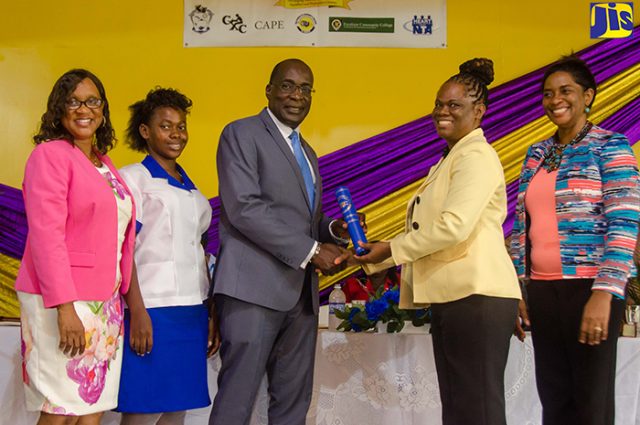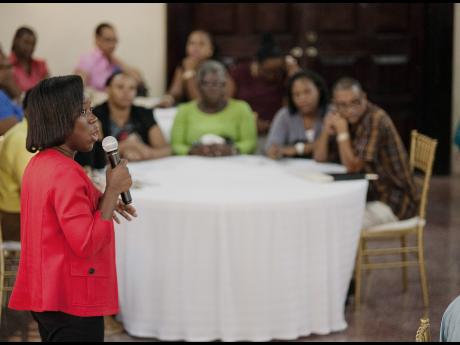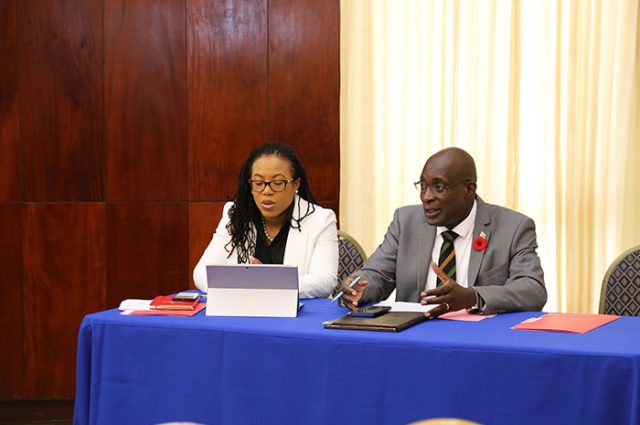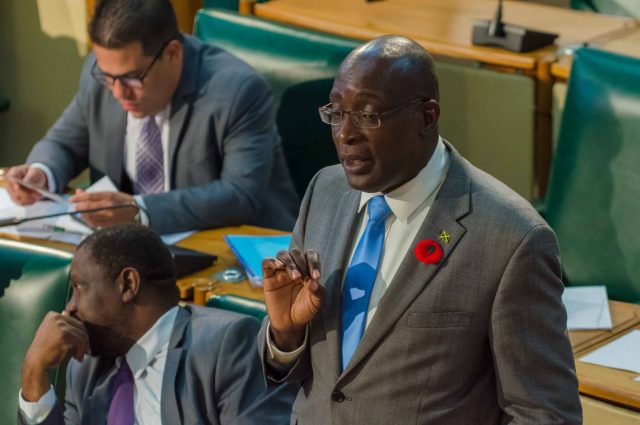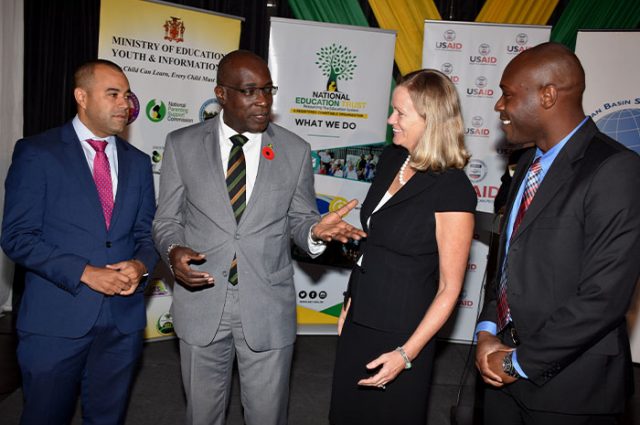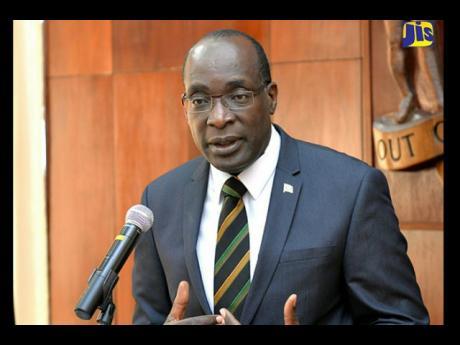JIS: The two-year-old Trench Town Polytechnic College in St. Andrew is looking to boost enrolment as it carries out its mandate to equip persons with skills to meet the demands of the labour market.
The institution, which started classes in October 2015 offering programmes with a focus on aligning training with industry needs, has already attracted hundreds of students from communities within its vicinity and areas as far away as Portmore, Harbour View and Papine, in day and evening classes.
Principal of the institution, Dr. Dosseth Edwards-Watson, tells JIS News that all the programmes are undersubscribed and the administration will be striving to reach more persons.
She says that the courses offered are market-driven, matching skills with labour industry needs. “We rely on industry to tell us what is in demand… . At the Polytechnic, we are big on inculcating employable skills,” she says.
She notes further that “every programme has entrepreneurship built into it”, so not only are students prepared for a job but to also create their own employment.
Dr. Edwards-Watson says that a major focus of administrators and staff is to ensure that the school environment represents all the attributes of care, so that human capital can be developed for national and global impact.
“We strive to maintain a compassionate environment and demonstrate a culture of care,” she points out.
Located at Eighth Street at the site of the former Trench Town High School, the multidisciplinary community college provides a holistic curriculum that is designed to give students a competitive edge.
Through collaboration with HEART Trust/NTA, Caribbean Maritime University (CMU) and the Jamaican-German Automotive School (JAGAS), the college offers programmes in areas such as data operation, auto body repair, customer service, maritime studies, port operations, and logistics.
There are also courses in mathematics, English language, career and personal development, entrepreneurship, computer repairs and electronics, social work, renewable energy, culinary arts, theatre arts and production, and scores of other disciplines.
Having received the Council of Community Colleges of Jamaica (CCCJ) stamp of approval, the institution is now empowered to award 10 associate, 12 applied associate, four bachelor’s, and three applied bachelor’s degrees.
Minister of Education, Youth and Information, Senator the Hon. Ruel Reid, says the institution is providing opportunities for continuous education, filling a gap for students between grades 11 and 13.
“This is the model that we are going to replicate right across the country,” he says.
Permanent Secretary in the Ministry, Dean-Roy Bernard, notes that often, persons are not trained for available jobs, but the college will “help to close that gap”.
CCCJ Executive Director, Dr. Donna Powell-Wilson, informs that the college will be subject to the organisation’s quality assurance process and course expansion to reach more people.
She notes that Trench Town Polytechnic is responding to the needs of residents of the area and its environs “at a time when it is crucial for young people, as well as mature Jamaicans, to become certified”.
Dr. Powell-Wilson contends that with the confidence that has been shown in the institution by the certifying body, members of the Trench Town business sector must now partner with the college to ensure its success.
“All hands are needed on deck to make this venture succeed for Jamaica’s sake,” she says.
For President of the Parent-Teacher Association (PTA), Donna Drummonds, having a “model school” in the community known for producing some of the world’s greatest reggae artistes, “is the way to go”.
She is urging young people, in particular, to take advantage of the opportunity to transform their lives.
Board member of the institution, Pastor Winston Clarke, notes that in its short existence, the college has already made a mark as a “key community asset”.
He says that residents now have an opportunity to improve their academic standards and job-readiness skills.
“We envision deeper partnerships with other community institutions in offering new and exciting courses,” he says.
The college can be contacted at [email protected], or 501-1264, 501-1253.
CAPTION: Minister of Education, Youth and Information, Senator the Hon. Ruel Reid (third left), receives the document for the Trench Town Polytechnic College to offer Council of Community Colleges of Jamaica (CCCJ)-certified courses from Executive Director, CCCJ, Dr. Donna Powell-Wilson (second right) at the recent media launch of the St. Andrew-based institution. Others (from left) are Chairman of the college, Dr. Joan Spencer-Ernandez; nursing student, Shanique Rumble; and Principal of the college, Dr. Dosseth Edwards-Watson.


